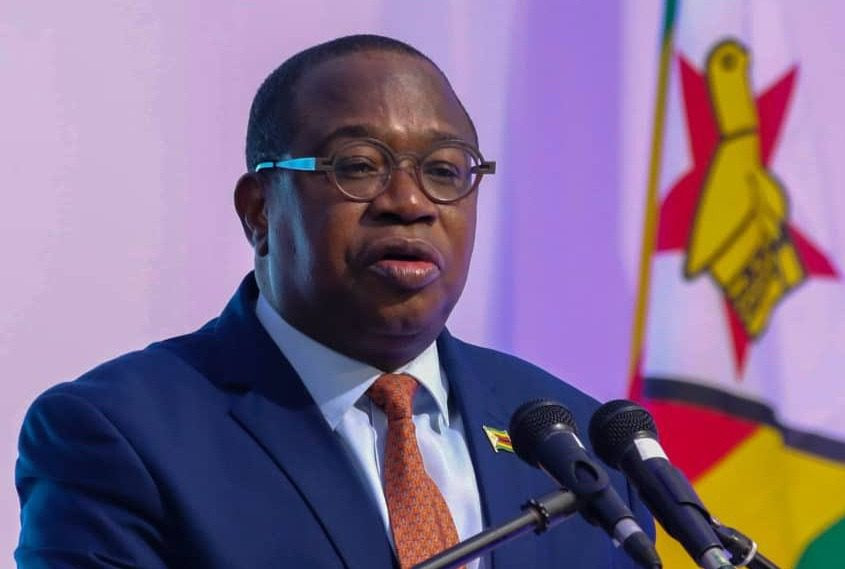
THE Zimbabwe Football Association (Zifa)'s financial records are in a mess amid revelations that the soccer governing body does not have details of transactions that happened before June 2023, an investigation has found.
In any case, the investigation, conducted with the assistance of the Voluntary Media Council of Zimbabwe, established that the financial records were already in disarray as confirmed by several financial audit results.
In briefings, Zifa officials revealed that an accountant employed by the soccer governing body before the normalisation committee took over in June 2023, disappeared and did not leave any records.
The normalisation committee was appointed by the Federation of International Football Association (Fifa), when it lifted the 18-month suspension that was imposed on Zifa in February 2022.
The committee was mandated by Fifa to put the Zifa house in order by running its daily affairs, restructuring the body's administration, reviewing its statutes and electoral code to ensure compliance with Fifa statutes and requirements as well as to ensure a proper financial handover to the new Zifa board, among other duties.
The accountant, however, disappeared soon after the committee assumed office, before being located several months later.
After being located, she however, said her computer “had a software malfunction”, hence she could not retrieve any information from it.
Quizzed on the missing documents, on November 10 through email and phone calls, Zifa administration assistant Merry Bharu said she would respond to the questions through email.
- Fifa bans top Zim referee
- Abused female refs take on Zhoya's accomplices
- Mr President, save our football from global isolation
- Mhurushomana cleans Zifa accounts
Keep Reading
“We have directed your questions to the relevant authorities who can provide you with a reasonable response and you will be notified through email,” Bharu said.
The Zifa administration was, however, yet to respond at the time of going to print last night.
Fifa forward projects manager Kudzai Chitima said he could not comment on administrative issues.
“I assumed my position at the inception of the normalisation committee in June 2023 and I can only comment on issues pertaining to that period to date which are related to the funds disbursed through Fifa’s Goal Project. Anything beyond that is not in my area of expertise,” Chitima said.
The case of missing financial statements and documents is not foreign at Zifa, which has often been accused of mismanagement and abuse of funds, leading to poor performance and non-development of the game in Zimbabwe.
A Zifa forensic audit report for the period December 2018 to November 2021 conducted by BDO Zimbabwe Chartered Accountants shows anomalies in the organisation’s financials as it details missing financial statements during the period under review.
“We included all the information that we came across which is relevant to the scope of our work,” the report read.
“However, it is possible that there are documents and information which exist which were not made available to us.
“Some of the officials who were Zifa board members during the period under investigation did not respond to our questioners, hence they are not included in the report.”
Documents obtained during this investigation revealed that financial problems within Zifa, a litany of lawsuits from former employees and match-fixing agents have bled the association.
The association has been in the red due to the administrative challenges that continue to emerge as a result of some controversial personalities that were in the leadership of the organisation.
The investigation found that maladministration and corruption were a common thread during former Zifa administrators Leo Mugabe, Cuthbert Dube, Phillip Chiyangwa and Felton Kamambo’s tenures, resulting in the association failing to ensure the development of football or complete projects, including the Fifa-sponsored Zifa Village.
Mugabe, the longest serving Zifa chairperson, was in office from 1993 up until January 2003, when he was removed following a vote of no confidence by the board.
At the time of his dismissal, he was accused of corruption, mismanagement, incompetence and maladministration.
According to media reports, Mugabe failed to account for more than US$250 000, a grant given to Zifa by Fifa which was earmarked for football development.
The Dube administration was in office between March 2010 and October 2015.
During his tenure, Dube was accused of putting in place poor corporate governance systems, ensuring that he became a sole decision-maker in the Zifa board, thereby creating loopholes and a lack of transparency and accountability.
Dube, the former group chief executive office of Premier Services Medical Aid Society, was later implicated in a salary-gate scandal at the government medical aid scheme, where he was allegedly improperly benefiting from taxpayers money.
The salary-gate exposé, between 2013 and 2014, unearthed how bosses at parastatals in Zimbabwe were awarding themselves mega salaries while failing to pay low level employees at times for several months.
Dube was allegedly earning around US$500 000 in monthly salary and allowances at a time when the entity was reeling from a debt of over US$38 million.
After Dube came the Chiyangwa administration, in office from 2015 to 2018.
Media reports described his administration as being possessed with greed and after self-aggrandisement.
Documents obtained during this investigation revealed that the former president leased the Zifa Village to his company Hansporte Investments.
During the tenure of the Chiyangwa administration, Zifa offices were moved from 53 Livingstone Avenue in the Avenues area to one of his properties in Chisipite.
A Zifa 2017 financial report compiled Baker Tilly Gwatidzo Chartered Accountants revealed anomalies regarding corporate governance during Chiyangwa’s tenure.
The report stated that in a potential breach of good corporate governance practices, Chiyangwa earned US$72 000 in 2017 alone by renting out his business offices along Enterprise Road in Harare to the association.
According to the audit report, Chiyangwa’s company, Kilima Investments, charged Zifa US$6 000 a month in office rentals.
The lease agreement between Zifa and Kilima Investments stipulated that rental fees should be paid in advance at the start of every year.
During Chiyangwa’s tenure, the Zifa debt ballooned from US$5 million to US$8 million between 2015 and 2018.
Further evidence extracted from the Zifa forensic audit report for the period December 2018 to November 2021 conducted by BDO Zimbabwe Chartered Accountants showed financial maladministration and misappropriation of funds by the executive leadership within Zifa.
The audited financial results exposed unaccounted for funds spent by top officials within the association in 2018.
The audited report outlined how money received from Fifa was misappropriated during the Kamambo administration.
“The grant of US$182 700 received on December 20, 2018, was omitted from the association’s books of accounts for 2018. The grant was deposited into a Fifa Ecobank account which was opened on December 20, 2018 by Mr Kamambo, Mr Machana and Mr Mamutse as signatories,” the report read.
“The account was not disclosed to the finance department by the end of the 2018 financial year, hence omission of the grant statement. On December 24, an amount of US$50 000 was transferred from the new bank account to Zifa general’s account and accounted for as sponsorship income.
“We also noted three cash withdrawals of US$10 000 made in the name Mamutse from Ecobank account on December 21, 24 and 25, respectively. We could not trace the cash withdrawals to the accounting records of Zifa and no supporting documents were availed to show how funds were utilised.”
The case of the Zifa Village
Corruption and bad corporate governance have resulted in Zifa losing money to lawsuits, stifling football development and infrastructural projects, the most notable being the Zifa Village.
In 2000, Zifa purchased a property for US$400 000, through the Fifa Goal Project.
The funding was part of the estimated US$2,5 million that was aimed at developing football in Zimbabwe.
Located in Mt Hampden, approximately 7km from the Westgate Shopping Mall, Zifa aimed to set up a training centre that would pave way for a sports academy.
On completion, the Zifa Village was supposed to transform Zimbabwean football, with upmarket lodgings, a world-class 200-seater conference centre, a world-class standard artificial turf stadium and a football museum (Hall of Fame) to be completed by 2013.
Approximately 24 years down the line, the village remains an edifice, evidence gathered during this inquiry reveals.
Apart from corruption, legal battles with former employees such as the Mhurushomana vs Zifa case sunk the Zifa Village.
Lazarus Mhurushomana, the longest-serving Zifa administrator, was retrenched by the football governing body in 2007.
He sued the association for terminal benefits and won the case.
Mhurushomana secured a writ of attachment to recover more than US$500 000 which he was owed by the association, resulting in the attachment of moveable property.
Another case that bankrupted Zifa was that of match agency Kentaro AG, which demanded approximately US$700 000 in 2014.
In the case, Zifa accrued a debt of US$650 000 from the Brazil match agency back in 2010 when The Warriors hosted Brazil in a friendly match played at the National Sports Stadium.
Kentaro AG won the case and to clear the debt, Zifa’s movable property, including the artificial turf at the Zifa Village stadium, was removed and attached through the High Court.
A 2013 Parliamentary Portfolio Committee on Education, Sports, Arts and Culture enquiry into the operations of Zifa on its programmes shows that there are loopholes in the Zifa constitution used to manipulate the administration.
The Zifa constitution is one of the most powerful pieces of legislation in the governance and administration of the association, yet members of the executive allegedly amend it to further their interests, creating a powerful and untouchable leadership which uses its political connections to attain and remain in control.
The Parliamentary Portfolio Committee report reveals that the Zifa executives amend the constitution to suit their personal needs.
Between 2004 and 2007, the constitution was amended four times.
“Whenever a new board comes into office, it changes the constitution so that it suits the executives (interests). From 2004 to 2007, the constitution has been amended to suit personal interests.
“It is the board which has executive powers to determine commissions of inquiry on corruption, maladministration, hence it is made to suit the needs of the board of executives,” the Parliamentary Portfolio Committee report read.
This investigation, however, established that the normalisation committee has now started the process of constructing the Zifa Village.
Chitima said plans were underway to resume the project.
“Fifa lifted the suspension on Zifa and the project is under review to enable the resumption of the Zifa Village,” he said.
“Plans are underway to redo the artificial turf and build a technical centre in accordance with Fifa guidelines.
“We have put out an advert for tender through the media and on Zifa websites to attract potential bids.”
Lincoln Mutasa, Zifa normalisation committee chairperson, said: “The Zifa constitution has been flagged by Fifa as a source of maladministration and corruption, hence needs to be amended for the institution to be assisted with funding for further development.”
Sports analyst Richard Zimunya said: “The image of Zifa has been dented by poor governance. Corruption within the organisation is rife because funds were not being handled well. Funds were abused and were never accounted for. Zifa struggled to complete projects such as the Zifa Village despite receiving funding from Fifa.”
Zimunya said corruption, mismanagement of funds, maladministration, poor corporate governance and politicisation of football had cast a long shadow over Zimbabwean football.
“There is no transparency and accountability frameworks within Zifa and that is why the Zifa Village failed,” he said.
“Zifa is a public office and all the finances that they receive through Fifa and other sponsors should be made available for public accountability.”










